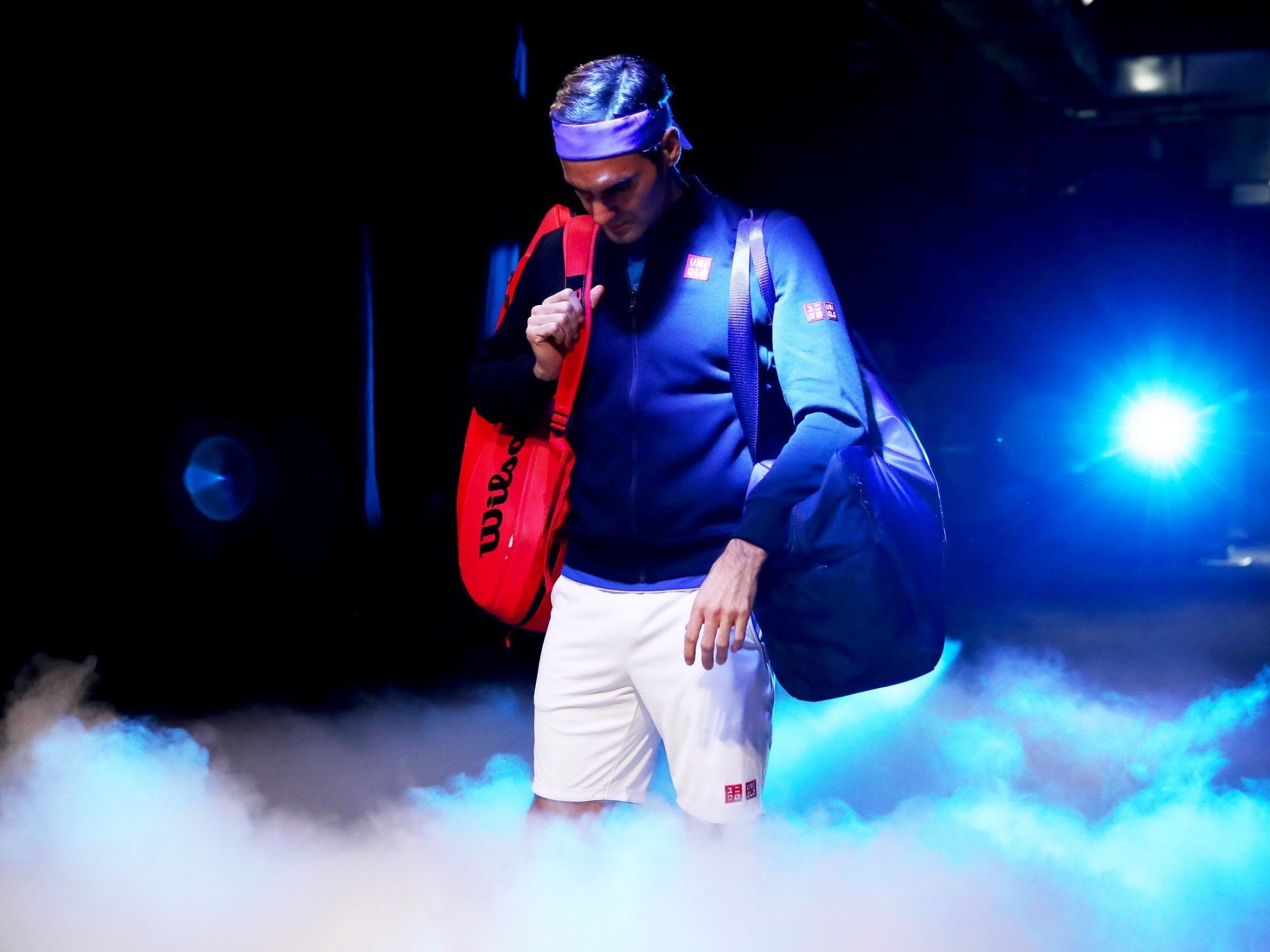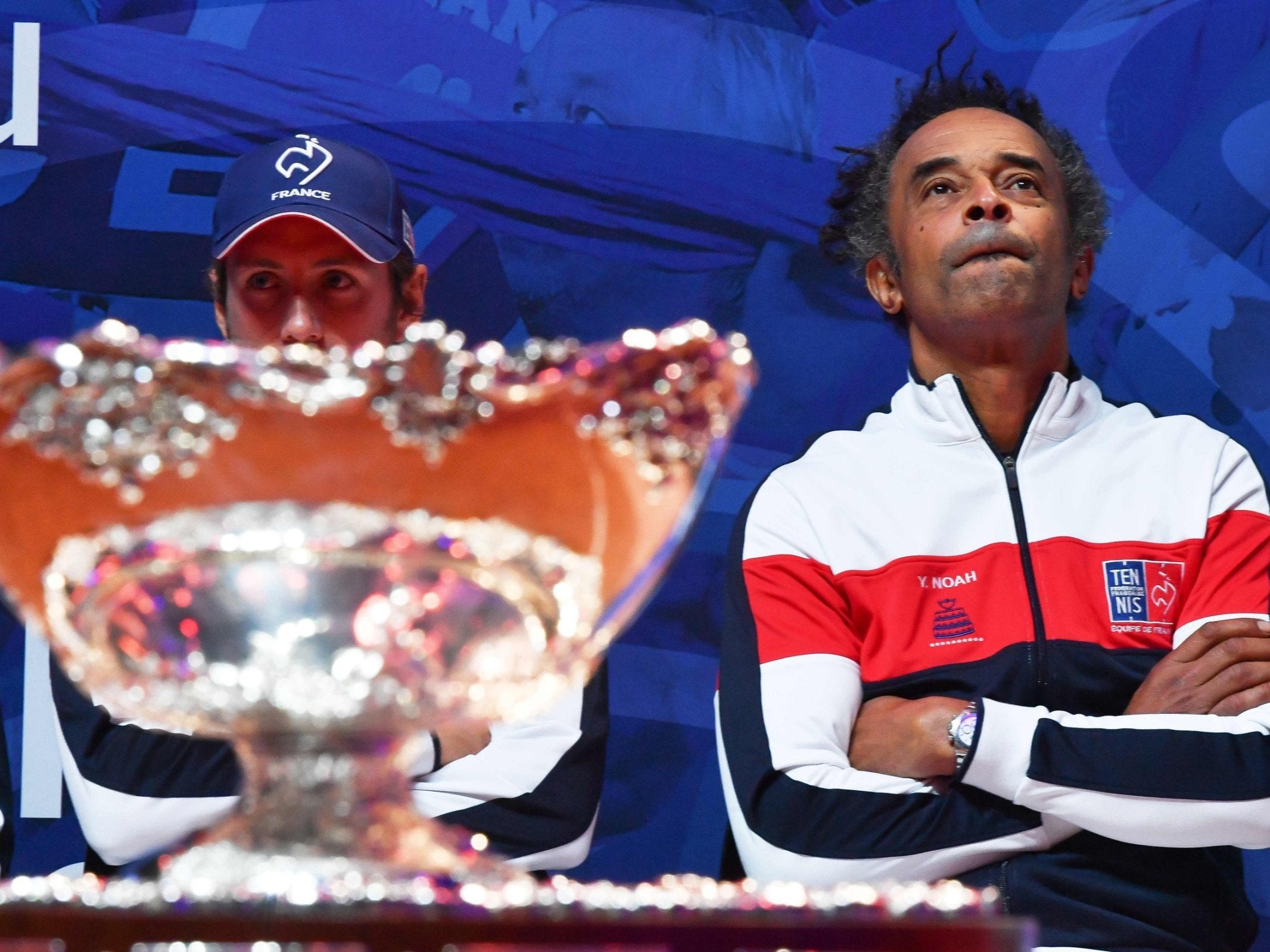Tennis is on fire, fatally divided and without an answer to the question: what does its future look like?
It feels like a liminal moment for a sport whose uneasy truces are fast disintegrating into a whirlwind of rancour and rapacity, whose very fundamentals are being renegotiated before our eyes

It all began, the story goes, in the century before last: an age of enterprise and empire, when rich men with big dreams could conquer continents and turn the potter’s wheel of history. For the businessman Dwight Davis and his three friends on the Harvard University tennis team in 1899, however, the vision was a little more modest: a transatlantic men’s tennis challenge between the United States and the British Isles. And more than a century after the sterling silver punchbowl that would be known as the Davis Cup was first lifted at the Longwood Cricket Club in Boston, that vision of cordiality and friendship, of shared endeavour in a fiercely individual pursuit, still endures.
Well, just about. For if the bell-tolling and obsequies are anything to go by, it will all come to an end this weekend in Lille. The Davis Cup final between France and Croatia is the last in its current incarnation, and though its name will live on, the essential character of the event will be so drastically altered as to constitute virtually a new tournament. From 2019, the whole thing will pretty much be done in a week: 18 teams in six groups, in one venue, in one city, in late November.
Its organisers are promoting it as a “World Cup of men’s tennis”, breathing life into a tired and ailing format and offering a spectacular climax to the season. Its detractors lament yet another submission of gilded tradition to big money, as well as an unwanted extension to a calendar that already feels bloated to the point of exploitation. Both, in their way, have a point. Either way, it feels like a liminal moment for a sport whose uneasy truces are fast disintegrating into a whirlwind of rancour and rapacity, whose very fundamentals are being renegotiated before our eyes.
As ever with these giant rebranding exercises, there’s a billionaire at the helm: Hiroshi Mikitani, chief executive of Japanese e-commerce company Rakuten, best known in Europe as the shirt sponsors of Barcelona. That also helps to explain the involvement of the footballer Gerard Pique, a close friend of Mikitani, whose investment group Kosmos has essentially bought the Davis Cup from the International Tennis Federation in exchange for a guaranteed return of £2.3bn over the next 25 years.
The repercussions of that decision – narrowly voted through at the ITF’s annual meeting in Florida in August – are continuing to be felt. Many felt alienated by Kosmos’s heavy-handed lobbying tactics. The votes themselves remain shrouded in mystery, along with any blandishments that were proffered in order to secure them. As the head of the German federation observed: “Sadly, the discussion in the last few days was mainly about money and not about the sport.” Roger Federer, whose own Laver Cup competition between Europe and the Rest of the World could be under threat from a revamped Davis Cup, angrily accused Pique of “meddling in the tennis business”.

Meanwhile the ATP, which runs the main men’s tour, have – in what you have to say is a spectacularly male move – decided to organise its own rival team competition starting in January 2020, just a few weeks after the revamped Davis Cup. Many of the finer details are far too arcane to bore you with here, but at the root of this tangled web of closet allegiances, naked self-interest and bureaucratic diarrhoea lies, in essence, a sport on fire. Not since the early days of the Open Era in the 1970s, the age of boycotts and rival tours, has men’s tennis felt more fatally divided.
The national federations are divided: most voted through the new changes, but a significant number (including Germany, Australia and Britain) did not. Some federations are even feuding with their own players, notably the French, who voted in favour despite most of their players being against. The players are feuding with the ATP. The ATP is feuding with the ITF. Federer fans and Djokovic fans and Nadal fans are merrily kicking six shades out of each other on the internet. A simmering current of anger and distrust seems to underpin the sport’s every transaction these days, and at the heart of it all is the one question upon which no two people can quite seem to agree: what should the future of tennis look like?
For most of the last 15 years, it’s a question nobody needed to answer. The golden era ushered in by the Big Four of men’s tennis created an illusion of concord, of a sport in perfect harmony, masking an archaic organisational apparatus that was never built for the furious trade winds of modern sport. How is it possible, for example, that no dedicated players’ union exists? How is it possible that the world’s 250th best player (Hungary’s Mate Valkusz, 2018 prize money: £23,000) can barely make ends meet? How is it possible that 45 years after the US Open offered equal prize money, the men and women still operate separate tours run by separate governing bodies and occasionally even separate rules? While Federer and Nadal were making us swoon, nobody cared.
But the dusk of the Big Four era, coupled with the realisation that the same audiences who flocked to Djokovic v Murray aren’t necessarily going to go gooey for, say, Karen Khachanov v Stefanos Tsitsipas, has forced administrators into action. According to ATP president Chris Kermode, the average viewer of tennis on television is in their 60s. Recent years have seen all sorts of fancy innovations tried out: the Laver Cup, Tiebreak Tens, shot clocks, the funky Next Gen competition with no tramlines, no lets, no advantage points, no line judges, and four-game sets. An optimist would describe it as the ultimate blank canvas. A pessimist would describe it as the desperate mayhem of a sport willing to torch its very essence in a forlorn attempt to look relevant.
And so the Davis Cup debate is really a proxy for something much wider: a cultural war of competing visions, competing futures, competing greeds. There are valid debates to be had about the ridiculous packing of the calendar, about best of three sets, about the future of team tennis in an era when the demands on individual players are more ruthless than ever, even about the migration of sport from a live event to a made-for-television entertainment, a movable flat-pack feast that can be auctioned to the highest bidder. But in order to have those debates, it’ll need everyone to stop shouting, and nobody seems to want to stop first. Men’s tennis may have to break apart before it comes together again.
Join our commenting forum
Join thought-provoking conversations, follow other Independent readers and see their replies
Comments
Bookmark popover
Removed from bookmarks